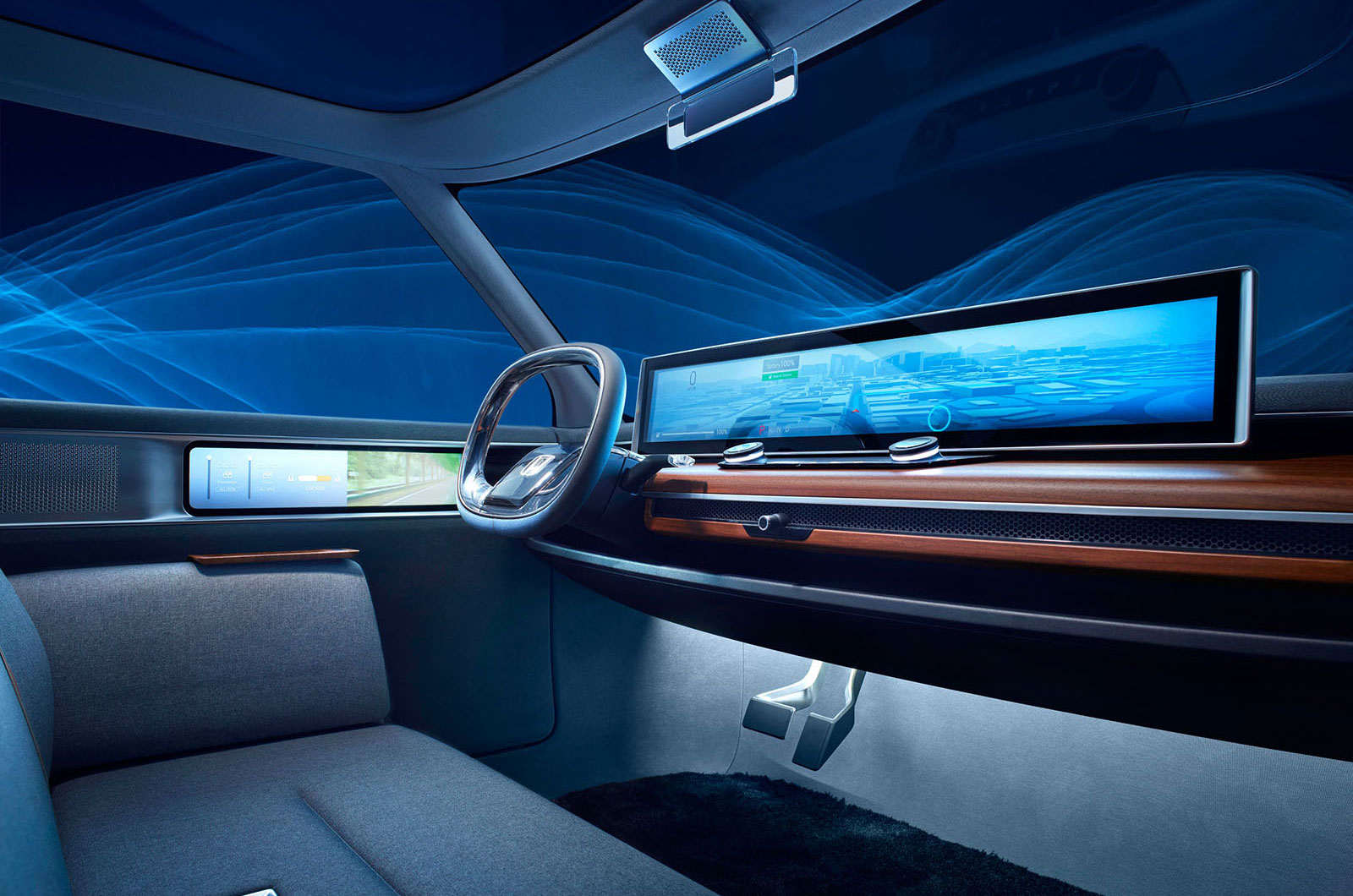It also had a Honda emblem backlit in blue, previewing a new styling feature for future EVs from the brand.
At the front, between the headlights, interactive messages can be displayed including greetings, advice for other drivers or charging status updates.
Inside, Honda has intended to create maximum visibility for drivers thanks to slim A-pillars and a wide windscreen. Entry and exit from the concept is via rear-hinged coach doors.
A so-called floating dashboard console houses the steering wheel column, a set of simple control buttons and a panoramic screen. The wrap-around screen goes beyond the dashboard and extends into the doors, a feature that works as the car’s wing mirrors through digital camera display.

No powertrain or range details were given for the concept, but Honda said the car would include a high-density lightweight battery pack, integrated heat management and energy transfer functions both to and from the vehicle. A source at Honda suggested a short-to-middling range, so around 155 miles (250km) is expected.
The Japanese car maker recently announced that each of its new model lines from now on would feature electrified technology in Europe.
It hopes to have two-thirds of its new car sales in the region using electrified technology by 2025, five years earlier than its overall global goal.
Honda president Takahiro Hachigo explained: “Here in Europe, we see this move towards electrification gathering pace at an even higher rate than elsewhere.”
The firm unveiled its Honda Power Manager Concept last year, an integrated energy transfer system that can distribute electricity to and from the main grid, as well as directing power flow from renewable sources and managing an electric vehicle battery connected to the home.
Philip Ross, senior vice president for Honda Europe, said: “When appropriate, Power Manager can draw on energy from the EV battery to power the home and minimise the demand from the main grid. It even allows the energy stored in the EV to be sold back to the grid to generate an income for the owner.”
The technology is undergoing a trial in western France, as part of the development of a regional ‘smart grid’ that’s due to be completed in 2020.
Related story
